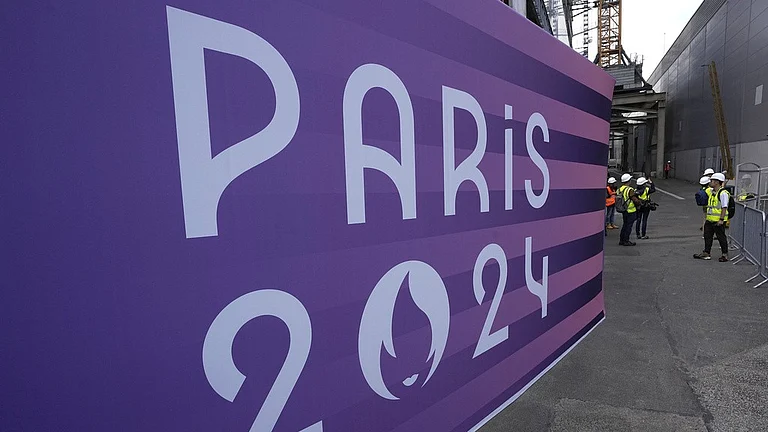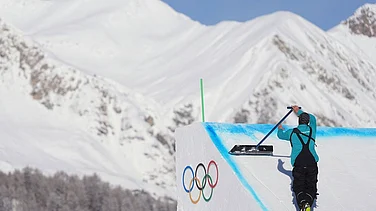The Olympics are widely considered to be at the pantheon of global sports events. Fairness is a key tenet of the Summer Games, and robust checks and balances are imperative to ensure their unimpeached functioning. One vital aspect of these checks is doping control. (More Sports News)
As many as 8,000 athlete samples will be collected during the upcoming Olympic and Paralympic Games in Paris, and all of them will be analyzed at a sole recognized centre - Laboratoire Antidopage Francais (the French anti-doping laboratory, or LADF).
What Is LADF
The laboratory, one of 30 in the world accredited by the World Anti-Doping Agency (WADA), is the only one in France. It is located on the campus of the University of Paris-Saclay in Essonne, northern France.
It is a state-of-the-art facility that has upscaled operations and upgraded its technologies to meet the Olympic standards. "The Saclay laboratory is the flagship of French anti-doping," the France minister of sports Amelie Oudea-Castera and her higher education and research counterpart Sylvie Retailleau had reportedly proclaimed on June 20.
The lab has been deliberately shrouded in secrecy to avoid undue access and tampering of samples. "The idea is obviously to prevent thefts, compromises, malicious acts on technical installations, cyberattacks too," French news outlet France Info quoted Frederique Camillieri, the prefect (high-ranking government official) of Essonne, as saying in a report.
What The Lab Will Do
During the Paris Olympic Games 2024, to be held between July 26 and August 11, the LADF will be tasked with analyzing 6,000 urine and blood samples. It will similarly analyze 2,000 samples during the Paralympic Games - from August 28 to September 8.
On every morning during the Olympics, the laboratory teams and their secretary general Magali Delia will collect around 400 samples in refrigerated containers. "Paris 2024 will deliver all the samples taken in the containers throughout the day, and we will take charge of them in one go," France Info quoted Delia as saying.
How It Will Analyze Samples
Each sample will travel from room to room and be analyzed at least thrice before being deemed 'abnormal'. "A first analysis that we call urine screening on which we look for as many prohibited doping products as possible. If there is a peak, we do another more specific analysis to be sure and then we move on to the confirmation chain", Delia added in the report.
About The Technologies
One of the key latest technology adopted by the lab is that of 'the dried blood drop' "It is a blotter on which you place the pulp of the finger. There will be a drop of blood on a matrix that can be analyzed. This has advantages because there is no need to refrigerate it like a blood sample," Delia explained.
It is this modern high-tech equipment that has made the French laboratory a benchmark, and its adoption was largely "thanks to the Olympic Games", the report quotes Beatrice Bourgeois, president of the French Anti-Doping Agency (AFLD), as saying.
AFLD is distinct from LADF. It is an independent public authority responsible for implementing actions to combat doping in France. Furthermore, while LADF will analyse human samples, the Laboratoire des Courses Hippiques (LCH), recognised by the International Federation for Equestrian Sports, will collect the equine samples.
"The Games are a very important step, we had to be ready at that moment. They served as a revelation and an accelerator of the fact that we were not exactly in the big leagues," Bourgeois told France Info.
How Lab Will Manage Large Volumes Of Samples
The 8,000 samples that LADF will analyse during the Olympics and Paralympics is the equivalent of four months of normal activity there. To respond to the increase in the volume of analyses to be carried out, the lab is tripling its teams, with 120 people to be deployed.
Speaking of equipment, Thermo Fisher Scientific, a life science and clinical research company, will supply the additional equipment required for storing the samples collected with the anti-doping controls, as well as the sample analysis instruments.





























